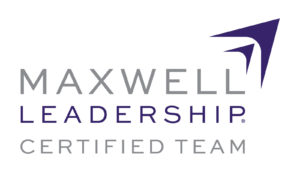
Trust is the lubrication that makes it possible for organizations to work. – Warren Bennis
There is an old story of a father who took his young son out and stood him on the railing of the back porch. He then went down, stood on the lawn, and encouraged the little fellow to jump into his arms. “I’ll catch you,” the father said confidently. After a lot of coaxing, the little boy finally made the leap. When he did, the father stepped back and let the child fall to the ground. He then picked his son up, dusted him off, and dried his tears.
“Let that be a lesson,” he said sternly, “Don’t ever trust anyone.”
While that’s a harsh way to teach a lesson about trust, the foundations of trust – what it is, what it means to be trustworthy, is something that needs to be taught at an early age.
An article in studyfinds.org found that the average American has five people in their life they have a strong relationship with and can lean on for anything. From finding someone who is trustworthy or a good listener to finding someone loyal, nearly three-quarters of respondents to a survey agree that strong partnerships help simplify the complexities of life.
While it may appear, at least on the surface, that most people have at least five people in their circle that they can trust or confide in – is the circle far-reaching enough to include the workplace and other areas critical to the success of a leader?
With trust as the focal point of your leadership, there is the potential for great opportunity and success. While trust does not guarantee this success, one thing is certain, there will never be success without it.
How then does a leader make trust the center point of his or her leadership? What does it look like? Why does it matter? Take these points into consideration.
Trust is an inside job first
In order to be a trusted leader, you first have to be trustworthy. Being trustworthy is an inside job. It’s the bedrock of your character and the needle of your moral compass. Trust is developed over time and is an integral part of your character development. Before you are a trusted leader externally, you first have to develop it on the inside. Click To Tweet
Trust is a validation
It’s commonly said that trust has to be earned. And while that is true in many respects, I see trust more as a validation that it’s been seen and observed over time, and has been recognized as a reliable character trait of the leader. When your trust has been validated by the people you lead, you now have the opportunity to lead them with a greater purpose.
Trust is verifiable
Making trust the central point in your leadership also makes it verifiable. Trust is validated not by your words but by your actions. As a leader, this is crucial. Nothing will cause your people to lose confidence in your leadership more than being unreliable and creating uncertainty in their minds about your ability to deliver on what you say. If trust is a validation of your leadership, it’s verified by your daily decisions and actions.
Trust is fragile
While no leader in good faith sets out to purposefully violate his or her trust, it must be handled with care. No leader is perfect and even the best mess up. Unrealistic expectations can be hard to manage, and trust is not exclusive to only the leader. Trust is a two-way street that all must be striving for and protect. The expectation of trust in the leader ought to be the standard for all. Click To Tweet
Final Thoughts
“Character makes trust possible, and trust is the foundation of leadership,” says John Maxwell. I agree. Trust is the glue that holds it all together and as a leader, it must take center stage in your leadership.
©2022 Doug Dickerson










